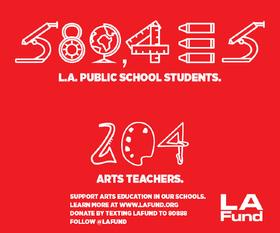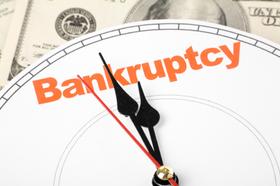The first day of school for Chicago Public Schools is just weeks away, but a myriad of problems continues to plague the district and even threaten the ability of schools to open on schedule. With ongoing conflict between school leaders and the teacher’s union, accusations of lying, and even a bond downgrade by Moodys’, CPS doesn’t look like a district getting ready to welcome students back to their schools. Will the problems be resolved by the looming August deadline?
Is a Strike Inevitable?
Disagreements between the teacher’s union and school administrators continue to heat up, and talks of a strike are concerning many in the Chicago school district. CBS News reports that a recent rejection of a fact finder’s recommendation fuels worries that teachers and school leaders will not be able to come to an agreement before the school year begins. The recommendation included a double-digit raise for district teachers, a move district officials have said they simply cannot afford.
The fact finder, Edwin Benn, made the recommendations after the two sides failed to come to an agreement on the proposed budget for the upcoming school year. The proposed $5.73 billion budget included a two-percent pay increase for teachers for the next school year, but the teacher’s union has said that amount is unacceptable. The Chicago Tribune reports that teachers booed the proposed budget when it was announced earlier this month.
The proposed budget also included a $665 million deficit, increased property taxes and drains the district’s reserve fund - moves that belie the dire financial situation in which the district currently finds itself. Tim Cawley, CPS Chief Administrative Officer, told the Chicago Tribune that the proposed budget represents a series of tough choices the district had to make in an effort to make ends meet for the next school year.
“You can’t keep throwing money at every problem,” Cawley reported explained in the Chicago Tribune. “We wish we could. But we don’t have the resources to do that, so we need to make trade-offs.”
Longer School Days Point of Contention
One of the biggest points of contention in the ongoing debate between teachers and district officials is the proposal to extend the current seven-hour school days by 40 minutes, initially made by Mayor Rahm Emanuel. Teachers have protested this change, particularly in light of the fact that their pay increase last year never occurred, and this year’s pay increase proposal is much lower than they hoped.
The good news is that the extended school day debate appears to now be settled. The Chicago Sun Times reports that an agreement has been made between city officials and the teachers union, which involves extending the day by the recommended amount, but hiring additional teachers to cover the time by offering classes in art, physical education and music. The new teachers would consist of some of the 477 recently displaced teachers from the district.
Although the move will cost the district an additional $40 to $50 million a year, Mayor Emanual assured teachers, parents and school administrators that they would find the money to make this move.
“You can’t afford not to [do it],” Mayor Emanuel was reported saying in the Chicago Sun Times. “You cannot relegate kids to the shortest school day and shortest year. This is the only way they’re going to have a chance at the future.”
The Chicago Teachers’ Union also backs the move, which would prevent teachers from adding an additional 40 minutes to their current work days. CTU President Karen Lewis told the Sun Times, “CPS has finally backed off the unworkable, seven-hour, 40-minute teacher work day.”
CPS School Administrators Removed from Posts Following Allegations
Another hurdle facing CPS this year is the removal of one dozen Chicago principals and assistant principals under allegations the administrators lied on forms in order to get free or reduced-price lunches for their own children in Chicago schools. The Huffington Post reports that these administrators have been removed from their positions, joining others in the school district that have been investigated for similar allegations.
In one case, a principal and assistant principal, who are married and making $230,000, do not even live in the district where they work and send their children to school without paying a cent for school lunches. The probe was handled by the Inspector General and includes an investigation into school lunch account records beginning in the 2009-2010 school year and dating beyond. A similar investigation last summer found 14 school officials committing the same fraudulent acts.
“The investigation by the [Inspector General] has uncovered continuing fraud in this program and we will not stand for any lapse in ethical judgment by our school leaders,” CPS Chief Jean-Claude Brizard told the Huffington Post.
Moodys’ Downgrades CPS Bond Rating
In a final blow to the struggling school district, Moodys’ Investor Service has recently downgraded the bond rating for CPS to A1. According to Reuters, the rating was the result of nearly $6 billion in debt and a significant depletion of the district’s reserves. In addition, the school district is facing increasing budgetary pressures and uncertainty in how conflict between the union and school leaders will pan out.
Moodys’ explained the downgrade also comes in the face of declining “pension funding levels with dramatic increases in required contribution levels in coming years.” Moodys’ has also stated that further ratings cuts were possible.
With the first day of school right around the corner, it does not appear CPS is ready for the upcoming year. This district has its work cut out if it wants to provide a positive and productive learning environment for students in just a few weeks’ time.















